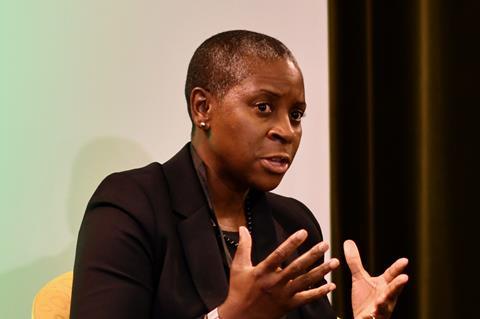The Law Society wants a controversial selection process for appointing judges to be abolished amid concern it is preventing the judiciary from becoming more diverse.
Earlier this year Lord Kakkar, chair of the Judicial Appointments Commission, revealed that he has ordered an independent review of ‘statutory consultation’ in judicial appointments following accusations that the commission has failed to do away with so called ‘secret soundings’ whereby judges were selected on the basis of whether they found favour with colleagues.
Lord Kakkar told the House of Commons justice select committee in June that there had been 'something of a misunderstanding in the description of secret soundings' and explained that the commission carries out a 'statutory consultation' as part of the selection process.
‘Statutory consultation’ requires the commission to consult a person who has held the office that candidates are applying for, or someone who has other relevant experience, to ensure that candidates are of good character and have the relevant capability for the role.

However, Society president I. Stephanie Boyce criticised the statutory consultation process in a speech to the Commonwealth Law Conference in Nassau today.
She said: ‘We have called on the Judicial Appointments Commission to abolish Statutory Consultation, through which existing senior judges who are not members of official selection bodies are sounded out about potential applicants. This process is problematic, as candidates from more diverse backgrounds are less likely to be known to senior judges and therefore less likely to receive positive feedback.’
Boyce said efforts so far to increase judicial diversity have resulted in higher numbers of applicants from underrepresented groups - but not higher numbers of appointments in senior courts.
According to data published by the Ministry of Justice, black, Asian and minority ethnic candidates represented 23% of applications across all legal exercises over the past three years, but only 12% of recommendations for appointment. While there has been a small rise in the number of Asian judges since 2014, from 7% in 2014 to 10% this year, the proportion of black judges has remained the same, at 1%.
Boyce said solicitor-judges bring a valuable set of skills, profession experience and expertise to the bench, which should ultimately have a wider positive effect on the judiciary. However, the latest data shows that the number of non-barristers in post is lower than what it was in 2014. Candidates who have ever been a solicitor made up 28% of recommendations for appointment, compared with 72% for barristers.
The Judicial Appointments Commission told the Gazette that the statutory consultation process is not about 'finding favour with colleagues'. It is a process required by law, with named consultees (detailed and published on the information page for each exercise) who are asked to provide an objective response with evidence for their views. Any information received from a statutory consultee is carefully considered by the commission board alongside the totality of evidence received from candidates throughout the selection process.
Abolishing statutory consultation would require recourse to parliament.



























2 Readers' comments